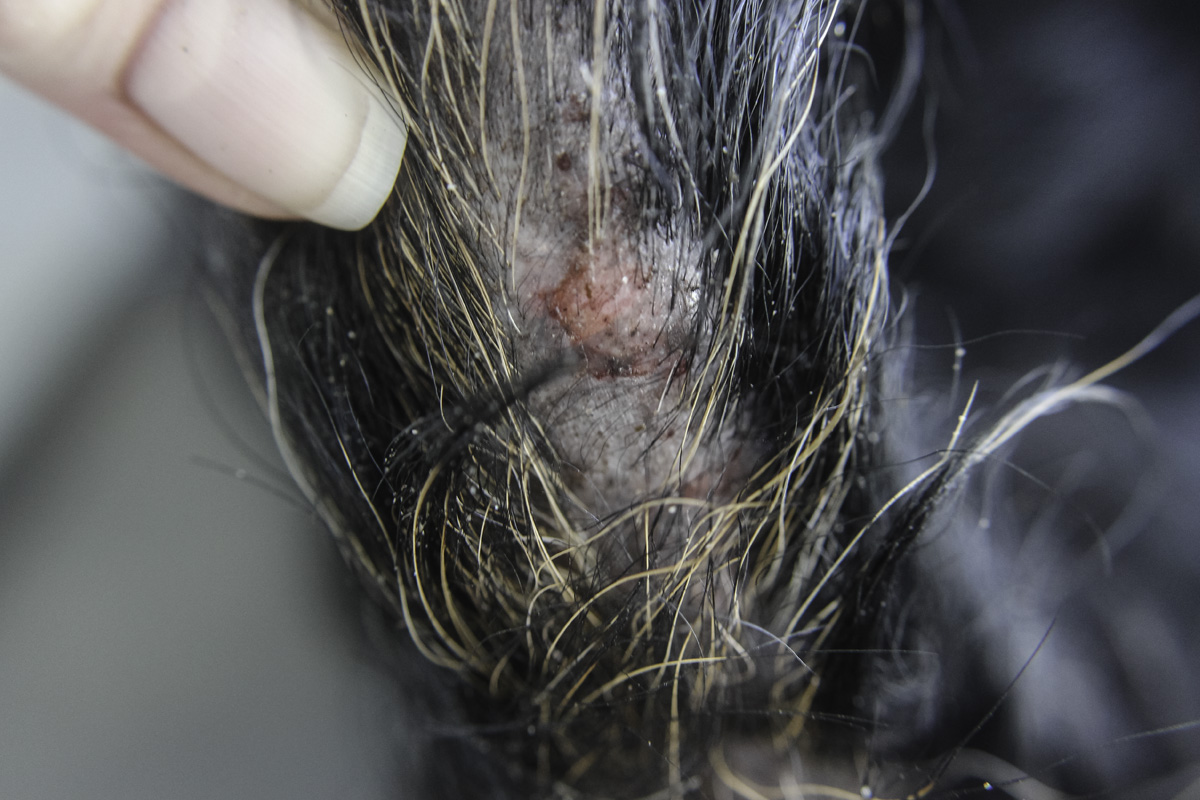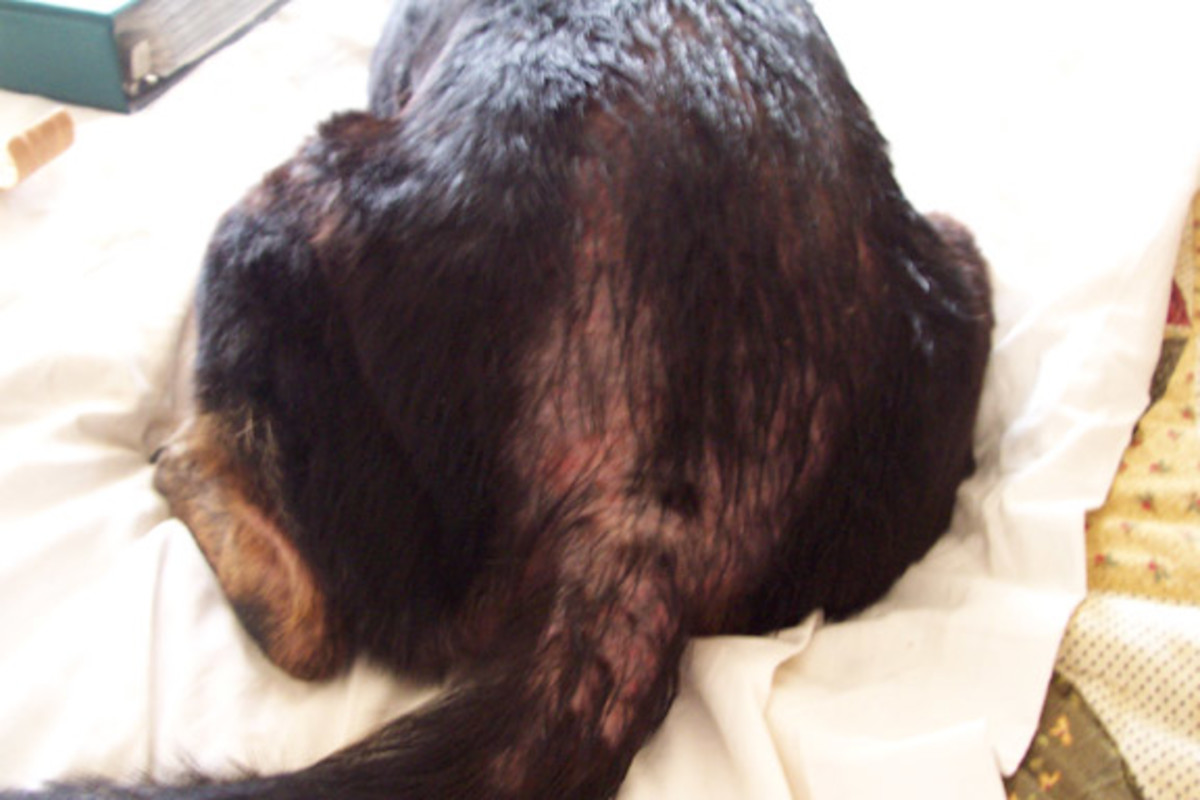If you think your dog might have any parasitic infestation, get advice from your veterinarian. The tail biting could be something caused by an external influence, like an allergy or a flea infestation.
Does Your Pet Have Allergies? SW Vet
Symptoms of allergic reactions are inflammation, itching of the skin, respiratory problems, and even diarrhea & induced vomiting in worst cases.

Dog biting tail allergy. Health issues such as external parasitic infection, impacted anal gland, allergies and teething issues can trigger this biting. My pup’s is usually due to food allergy issues or consuming something he shouldn’t, like fatty greasy beef in any form, which he just happens to love! The most common reason why your dog bites its tail is allergic dermatitis.
If it turns out your dog is biting its tail because it’s having an allergic reaction to something, remove the allergen from your home. The second most common reason for dog tail biting is allergies. Cats and dogs become itchy all over but especially on the base of their tail.
This is called flea bite dermatitis and is actually what causes the most discomfort to dogs, and why they bite their bum and tail. This can lead to the dog chewing the underside of their tail. It could even be a fungal or bacterial.
She could also be allergic to her food or treats, or could have been exposed to something in her environment that she's sensitive to, like a cleaner, laundry detergent, or carpet spray. They will bite at their tail base and back end, underside areas and also scoot across your Obsessive or compulsive canine behaviors, like chasing and gnawing at the tail, always have a root cause.
Flea allergy dermatitis is the allergic reaction to flea saliva after the flea bites your pet. Determining and treating food allergies. Allergies can be environmental or from fleas or certain foods.
If you suspect that your dog’s tail biting is medical related, it’s wise to seek help from a veterinarian immediately. These arthropods cause allergic reactions around the bite location. As a result, the pet might bite and chew its tail and the skin around it to relieve unpleasant sensations.
Fleas, dermatitis, and impacted anal glands can all cause your dog to compulsively bite and chew on. Another common reason why your dog may be persistently licking or biting at the base of the tail is allergies. When your dog keeps biting his bum and tail, it could be a bad habit that he has picked up.
Allergies, injury, infection and stress are among the causes of dog tail biting or tail chewing. Others may not be immediately visible, like. When your dog stops chewing its tail after you give the command, reward it with a treat or toy.
If a dog develops dermatitis due to allergies, its skin will become red, itchy, and inflamed. Some of these issues may be noticeable on the surface, like skin allergies or parasitic infestations. One of the most common reasons for a dog biting or bothering their own tail is allergies or sensitivities that lead to hotspots on the skin, which are sore, inflamed and often itchy.
The tail is itching due to an allergic reaction. Contact your vet for a proper diagnosis. Food allergies are less common than environmental.
It could also stem from something more severe issue, such as infected anal glands or a broken or fractured tail. These parasites are generally arthropods such as ticks & fleas. Among other reasons are stress, parasites, poor diet, and impacted anal glands.
When the dog bites its tail it may be because of a response to discomfort & itching caused by parasites. These can be either food or environmental. The primary reason that dogs bite their tails is allergic reactions.
Very commonly found in pets of all sorts, allergies are one of the causes behind that itchy skin. Anxiety, boredom and obsessive compulsive disorder could also cause this behavior. Since dogs cannot talk, they cannot make their needs or desires plain to us in any simple or intelligible way.
Then in terms of food, it could be wheat, carbs, vegetables and even some forms of protein. There are many reasons that dogs may bite their tails, many of them being medical reasons, so visit your veterinarian to eliminate medical causes before beginning a behavioral program. Let’s talk a little bit more deeply about every possible problem with your dog’s tail in this article.
The base of the tail is one of the most common areas for hotspots to develop, which will often lead to your dog biting, scratching or. A dog biting his tail can indicate either medical or behavioral problems. On the environmental front, things such as pollen and even cleaning agents could have adverse on your pet.
Popular allergens are pollen, dust, dander, food, beauty products, cleaning chemicals, and even insects. Flea or ticks can cause irritation to the skin and make your precious pooch uncomfortable. It can cause their skin to swell, turn red and they may develop sores and scabs.
Dogs may experience a wide range of issues that cause them to bite or chew their tails. Canine allergies are often caused by parasites such as ticks, mites, and fleas. This might mean keeping your house cleaner to reduce dust, or it might mean eliminating a certain food or ingredient from your dog's diet.
Like us, dogs can be allergic to pretty much anything out there. Once a flea bites your dog, your dog may then have an allergic reaction to the flea’s saliva. Your dog might have a skin allergy that is causing him to bite its tail.
When diagnosing a food allergy, the vet will usually use a diet trial.

Dog Itching Base Of Tail BEST PET CARE HUB Dog

Dog with Severe Allergies Rescued Tails of a Shelter Vet

What Causes Hot Spots on Dogs? PetHelpful

